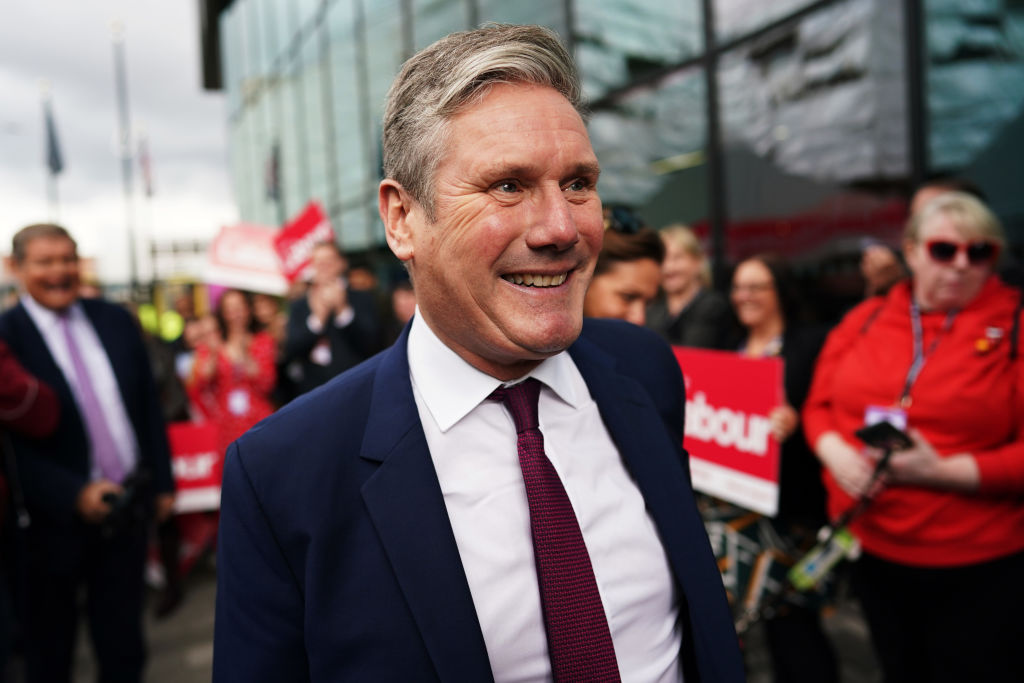The mood at Labour conference so far has been pretty upbeat. Last night on the fringes, frontbenchers were visibly happier and more relaxed than they’ve been for years, feeling emboldened to criticise left-wing groups such as Momentum (Wes Streeting told one meeting they’d be better named ‘Inertia’). The broadcast screens around the centre underline why the party is feeling confident: the fall of the pound is just, in Labour’s view, the latest sign that the wheels have come off the Conservative party.
The fall of the pound is just, in Labour’s view, the latest sign that the wheels have come off the Conservative party
That’s not to say that everyone is delighted with the way the leadership is approaching the big issues of the autumn. Strike action and ballots for further industrial action have been moved back a little as a result of the period of national mourning, but walk-outs and picket lines will be a key feature of the next few months.
Delegates have been complaining on the conference floor this morning that Labour frontbenchers are banned from joining picket lines. Andrew Fisher, a former aide to Jeremy Corbyn, told the hall that this policy made the strikes about Labour, not about the ‘modest’ asks from the workers. There have also been a number of irritated speeches from trade unionists complaining that even when conference has passed motions on nationalising railways, the postal service and so on, frontbenchers have been fast to dismiss them from becoming official policy.
The leadership is trying to show it is relaxed about the picket line rows, with Starmer continuing to stick to his line about the party having a different role to trade unions. Instead the strategy is to spend this morning talking about being radical on climate change. Ed Miliband, so much happier too now that he’s not trying to lead the party, has just given a passionate speech in which he accused Jacob Rees-Mogg of ‘climate denialism’ and promised ‘millions of green jobs under Labour’. The shadow climate change secretary argued that it was now cheaper to save the climate than to use fossil fuels, and listed the many ways in which the Conservatives had broken the energy market.
Within the party, there are tensions about how far to push the green agenda during a cost of living crisis and Miliband’s point about the lower cost of tackling climate change was clearly an attempt to square off those internal critics too. But these are all the sorts of tensions you get within a party that’s serious about governing – which has been a long time coming for Labour.







Comments